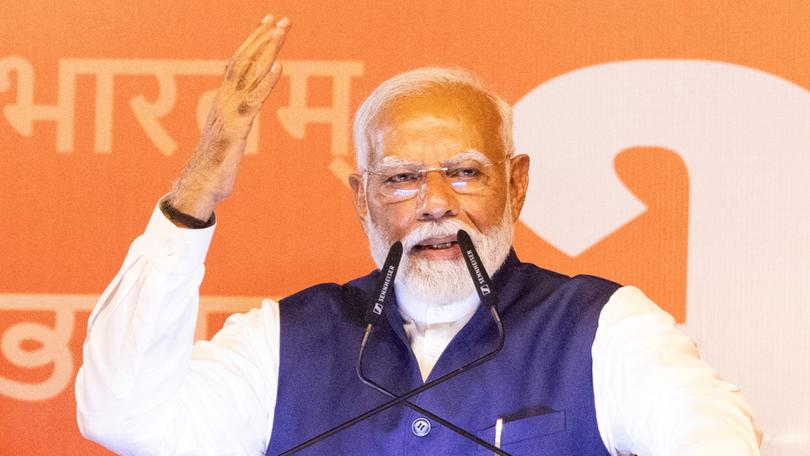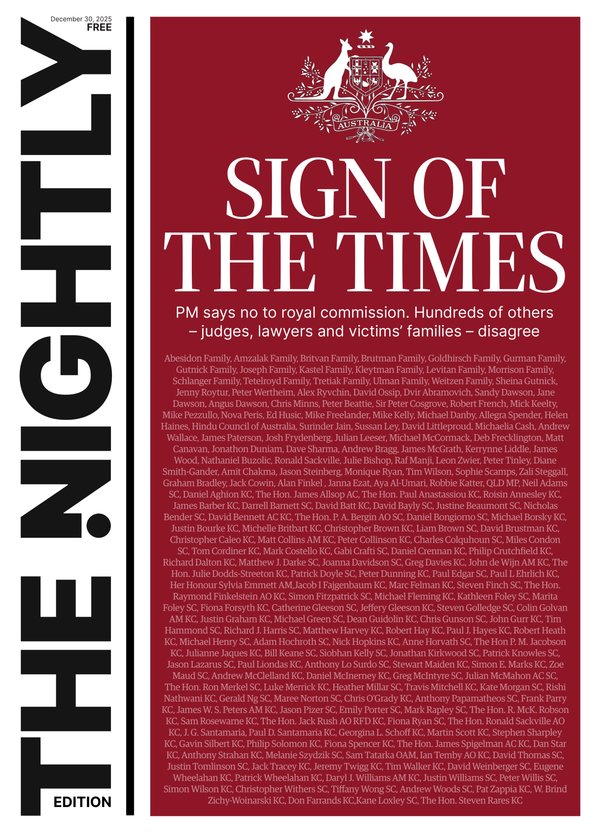Narendra Modi: Former high commissioner to India Barry O’Farrell says PM’s election shock will lead to change

Australia’s former high commissioner to India says Narendra Modi’s surprising loss of his majority could lead to the Indian Prime Minister putting aside some of his more controversial and divisive Hindu nationalist policies.
In a stunning and unexpected result, Modi’s BJP party lost its majority. Modi won a third term as Prime Minister but will govern in coalition, weakening his strongman image.
Pollsters had been forecasting Modi would increase his grip on power with a landslide win and claim as many as 400 seats — prompting tears from one prominent pollster on live television as the results came in showing the BJP would struggle to reach even 300 seats.
Sign up to The Nightly's newsletters.
Get the first look at the digital newspaper, curated daily stories and breaking headlines delivered to your inbox.
By continuing you agree to our Terms and Privacy Policy.“It was a shock,” Barry O’Farrell, the former New South Wales premier said of the result, in an exclusive interview with The Nightly.
“For those people who think democracy was dying or withering in India, the election is a great example of just how deep-seated democracy is by Indians.
“I think the best thing about this election is that for the first time that I’ve seen, Congress (Party) has shown themselves to be effective.
“They’ve managed to sideline the dynastic dysfunction that was blighting the party.
“Good oppositions make better governments because they hold them to account and that hasn’t been happening in India.”
The surprising result throws into question whether or not Modi will be able to pursue controversial policies that have weakened the rights of Indian Muslims, and seen an overall crackdown on BJP critics in the media, politics, and human rights organisations.
Last month, The Nightly revealed Australian VIPs had been quietly advised to take burner phones with them to India, signalling concerns their devices could be comprised by Indian security agencies.
It followed revelations that ASIO had kicked out a “nest of Indian spies” caught trying to steal Australian trade secrets and compromise figures with access to classified information including defence projects.
And it was set against the backdrop of the sensational investigations in Canada and in the US exploring whether Indian security officials sanctioned assassination plots against against Sikhs on Canadian and US soil.
Mr O’Farrell, who now advises Sydney University Vice-Chancellor Mark Scott on India diaspora issues since completing his term as Australia’s top diplomat in Delhi at the end of last year, said economic dissatisfaction was partly behind the result.
But he said India was becoming more educated and playing “communal politics” was no longer a guaranteed vote-winning strategy as the middle class grew.
“Playing different groups in the community off against each other, whether it’s caste, whether it’s communal, whether it’s nationality, whether its religion has been part and parcel of Indian politics for a long time,” he said.
“But it’s got sharper and it has got sharper because we live in a world where we’re always blaming others.
They’ll make changes, Modi is too smart not to and I think that’s probably a good thing for us all.
“I think it’s a sign that there is a change and the best way to put an end to that traditional type of polling is when you play it and you lose.”
He said Mr Modi being forced to govern in alliance would knock some of the harder edges off the BJP-led government, which would ultimately benefit India abroad as well as the bilateral relationship.
“The good thing about the result is that alliance governments do help temper some of the majority party’s ambition and tactics and I think that’s good,” he said.
“Because there are many things that Modi has done both domestically and internationally that deserve greater credit but the sorts of tactics and antics that you’ve referred to, inevitably give India and the BJP a tarnished view in the world’s reputation.
“So I think some of those things may improve and India may well be acknowledged for some of the good things it’s doing as opposed to, too often, some of the terrible things that happen to India.”
O’Farrell said 73-year-old Modi remained the world’s best political communicator “bar none” and would remain “the boss (of the BJP) as long as he’s there.”
“They’ll make changes, Modi is too smart not to and I think that’s probably a good thing for us all.”
A majority of Australians — 56 per cent — trust India to act responsibly in the world according to the latest Lowy Institute poll, although this is down slightly from a high of 61 per cent in 2021 and the same survey showed confidence in Modi fell by seven points to 37 per cent.
“This is frank analysis from the former high commissioner,” said Ian Hall, professor of International Relations at Griffith University and an expert on India.
“This election result provides a reset opportunity for India but the big unanswered question now is whether Modi will accept the constraints of governing in a coalition where the partners have actual leverage,” Mr Hall said.
“In 22 years as chief minister and as PM, he’s never had to do this before so it’s uncharted territory for him.”

